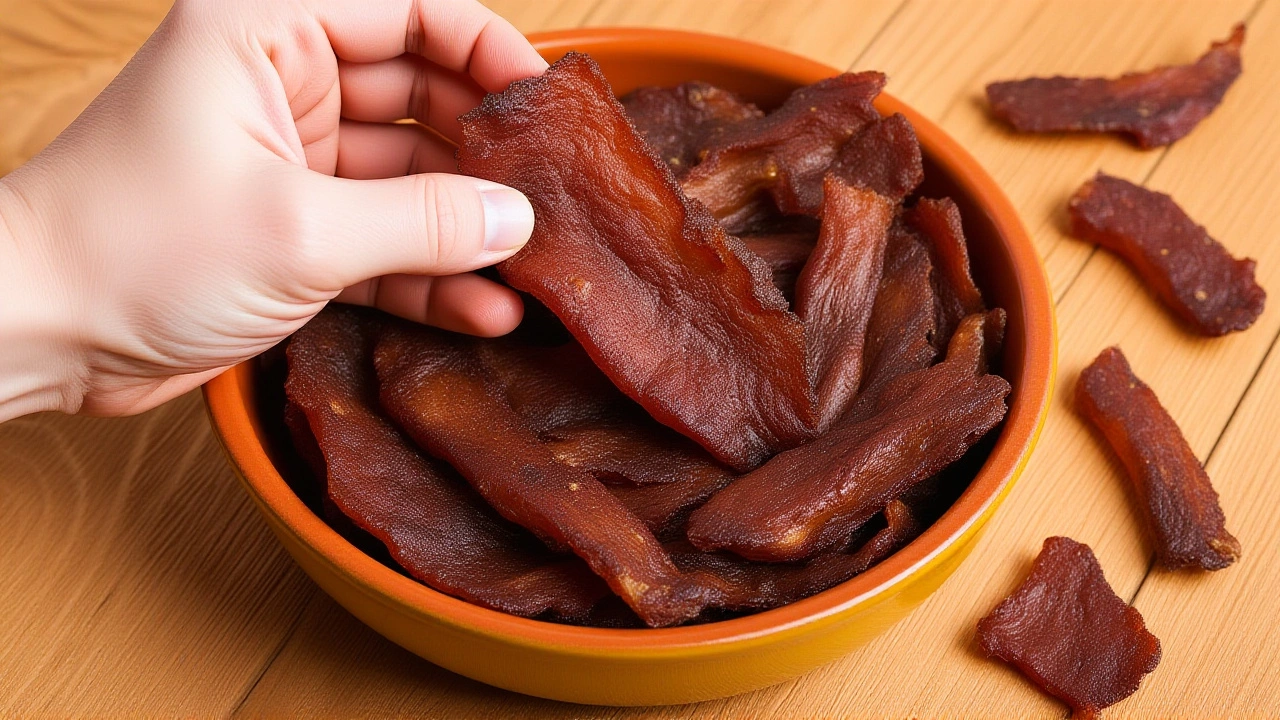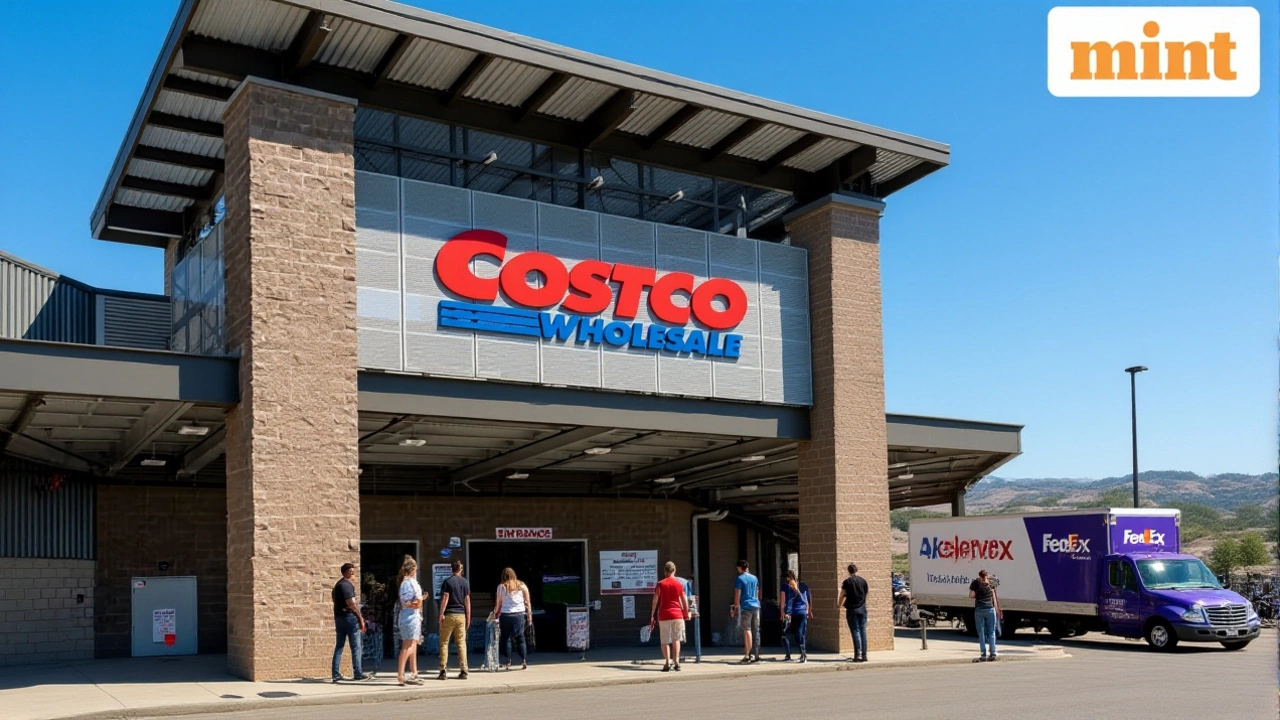Costco is recalling two popular ready-to-eat salad products after discovering potential plastic fragments in the Caesar salad dressing — a discovery that triggered a precautionary alert but no reported illnesses. The recall, announced on Costco Wholesale’s official recalls page on November 26, 2023, affects Caesar Salad (Item #19927) and Chicken Sandwich with Caesar Salad (Item #11444), sold at select warehouse locations across the Midwest, Northeast, and Southeast United States. The contamination, described only as "possible plastic" in the dressing, has raised alarms among consumers who rely on Costco’s reputation for quality control — especially in pre-packaged meals meant for immediate consumption.
What We Know — And What We Don’t
The recall notice, posted on Costco’s corporate website, offers minimal detail. There’s no mention of the size, type, or source of the plastic. No dates of production or batch numbers are listed. No consumer complaints or injuries have been publicly confirmed. And crucially, the notice doesn’t tell customers what to do if they’ve bought the product. Should they throw it out? Return it? Call customer service? The lack of clear instructions is unusual for a food safety recall, especially one involving foreign objects in food. The New Haven Register and Norwich Bulletin both reported the recall on the same day, suggesting coordinated media outreach — yet neither had access to internal Costco documents or statements from quality assurance teams. The company, headquartered in Issaquah, Washington, typically uses item numbers rather than brand names on its recall pages, making it hard to tell if the dressing is part of its Kirkland Signature line or a third-party supplier. That ambiguity leaves consumers guessing about the origin of the problem.Why This Matters Beyond the Salad Bowl
Costco’s business model thrives on trust. Shoppers pay annual fees for bulk goods they believe are rigorously tested. When a recall like this happens — especially one involving plastic — it chips away at that confidence. Unlike a spoiled lettuce leaf, plastic in dressing isn’t just unappetizing; it’s a physical hazard. Swallowed fragments could cause internal injury, especially in children or elderly consumers. The fact that no illnesses have been reported is reassuring, but it doesn’t eliminate the risk. This isn’t the first time plastic has turned up in food. In 2022, a major grocery chain recalled frozen meals after customers found shards of hard plastic in chicken dishes. In 2021, a salad brand in California pulled over 100,000 units after a packaging machine malfunction sent tiny plastic flakes into spinach. But those recalls came with batch numbers, return instructions, and sometimes even compensation offers. Costco’s notice feels incomplete — like it’s missing a critical piece of the story.Who’s Responsible? The Silent Supplier
One of the biggest unanswered questions: who made the dressing? Costco sources food from dozens of suppliers, and its private-label products often come from manufacturers that don’t appear on retail packaging. If the plastic came from a faulty cap, a broken mixing blade, or even a degraded seal on a bulk container, that’s a manufacturing issue — not necessarily a Costco failure. But the public sees Costco’s name on the bag. The company bears the brand risk, even if the error happened upstream. Food safety experts say this kind of recall is often triggered by internal quality checks — not consumer complaints. That suggests Costco’s own inspectors caught something during routine audits. But why wait until after products were already on shelves? And why not release the findings publicly? Transparency builds trust. Silence breeds suspicion.
What Comes Next?
The recall remains active on Costco’s website as of now. Given the company’s 120-day archive policy, affected products were likely sold between late July and late November 2023. That’s a four-month window — and thousands of salads potentially distributed. Costco has not announced a timeline for lifting the recall or whether it will issue refunds. The U.S. Consumer Product Safety Commission (CPSC) is mentioned as a resource, but this is a food item, not a consumer product — which makes that reference confusing. The FDA, which oversees food safety, is not referenced at all. Industry insiders say this could be a sign of deeper supply chain issues. As retailers push for more ready-to-eat meals to compete with fast-casual chains, the pressure on suppliers to scale up often leads to corners being cut. Plastic contamination, while rare, tends to spike during production surges or when equipment isn’t properly maintained. Costco’s scale makes it a prime target for such oversights.What Consumers Should Do
If you bought either product — Caesar Salad (Item #19927) or Chicken Sandwich with Caesar Salad (Item #11444) — and it was purchased at a Costco warehouse between July and November 2023, check the item number on the packaging. Even if the salad looks fine, don’t risk it. Call Costco’s customer service line at 1-800-774-2678. Ask for a refund. Don’t wait for them to contact you. And if you’ve already eaten it — and feel unwell — seek medical attention and report it to the FDA’s MedWatch program.Frequently Asked Questions
How can I tell if my Costco Caesar salad is part of the recall?
Check the item number on the packaging: only #19927 (Caesar Salad) and #11444 (Chicken Sandwich with Caesar Salad) are affected. These were sold in select Midwest, Northeast, and Southeast warehouses between late July and late November 2023. No brand names are listed — just the item number. If you’re unsure, call Costco customer service or visit their recalls page.
Has anyone gotten sick from this contamination?
As of now, no illnesses or injuries have been publicly reported in connection with this recall. That doesn’t mean there haven’t been any — just that Costco and regulators haven’t confirmed them. The recall is being treated as precautionary, which suggests the contamination was caught before widespread harm occurred. Still, plastic fragments can cause internal damage, so caution is advised.
Why didn’t Costco include batch numbers or production dates?
This omission is unusual and concerning. Most food recalls include specific batch codes, production dates, or UPCs to help consumers identify affected items. Costco’s use of only item numbers suggests either a lapse in tracking systems or a decision to keep details vague — possibly to avoid legal exposure. Consumers are left to guess whether their product is included.
Is this recall connected to the FDA or USDA?
No regulatory agency is named in the recall notice, which is atypical. The FDA oversees food safety, while the USDA handles meat and poultry products. Since the salad contains chicken, USDA oversight might apply — yet neither agency is mentioned. Costco appears to be acting alone, which raises questions about whether the recall was voluntary or prompted by an inspection.
What should I do if I already ate the salad?
If you consumed the salad and feel no symptoms, you likely have nothing to worry about. But if you experience abdominal pain, vomiting, or difficulty swallowing — especially within 24 to 48 hours — seek medical care immediately. Keep the packaging and receipt. Report your experience to the FDA’s MedWatch program and to Costco’s customer service. Even without symptoms, documenting potential exposure helps regulators track patterns.
Will Costco fix this problem so it doesn’t happen again?
Costco hasn’t publicly outlined any corrective actions. But given its scale, the company likely has already reviewed its dressing supplier’s production line, inspected packaging equipment, and possibly switched manufacturers. What’s unclear is whether they’ll share those changes with customers. Transparency after a recall is just as important as the recall itself.

